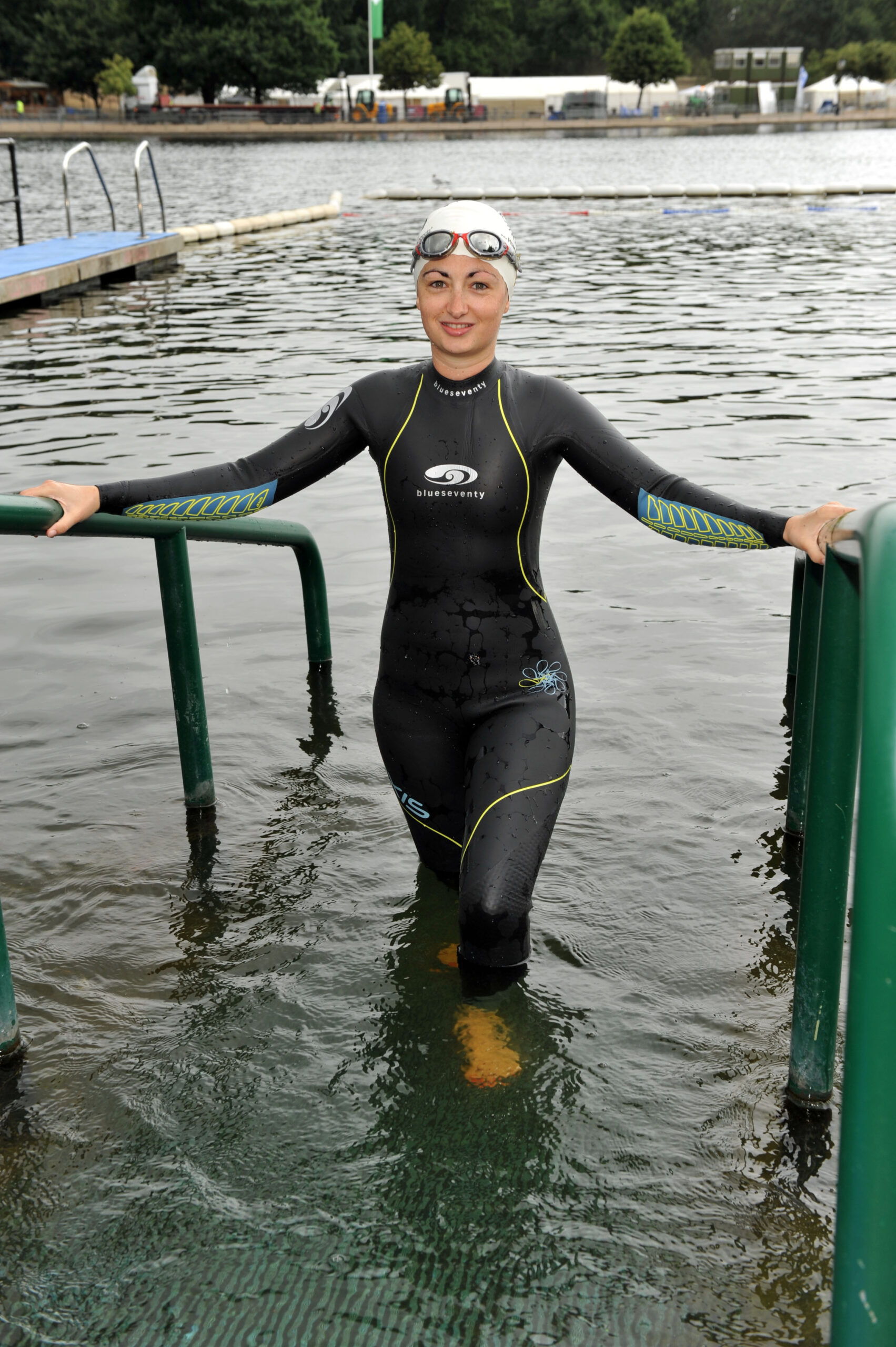Nicola Spirig: GOAT? The 40-year-old Swiss star faces some tough competition among the pantheon of multisporting greats, but for one-day feats of endurance she has to be in with a good shout of claiming this popular term to celebrate exceptional athletes.
The mother-of-three qualified lawyer has competed at five Olympic Games since she started ITU racing in 1998, aged 16. In Athens she finished 19th, Beijing sixth, London first, Rio second and Tokyo sixth.
In that time, she also won six European standard-distance titles and her first Ironman on debut (Cozumel, 2014). This year alone she finished second in the 10,000m at the Swiss National Athletics Championships and won the European Middle-Distance Championships in June.
We're exhausted just writing that intro! So let's speak to the two-time Olympic medallist, following what was most likely her last Olympic Games race…
220: Congratulations on another phenomenal Olympic Games performance
[Nicola finished sixth]
. How did this one differ to your other Games’ races?
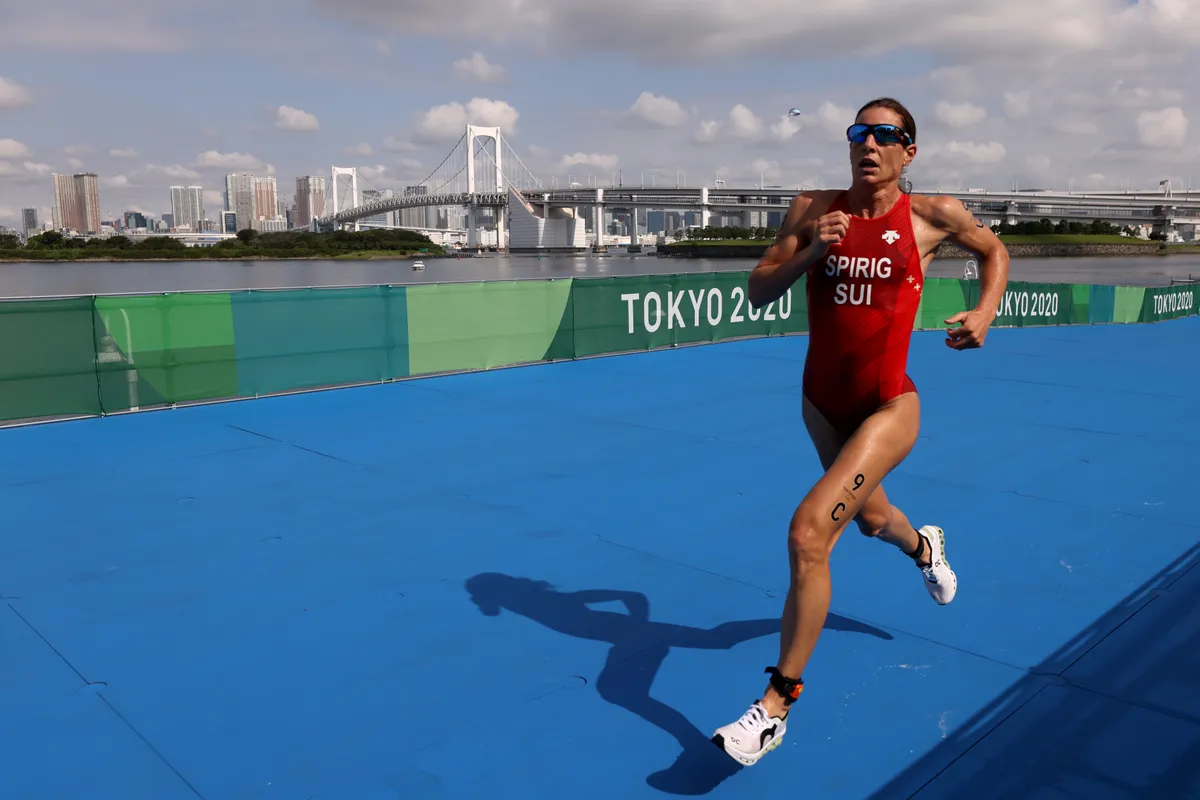
Thank you. I had a good preparation, was glad I didn’t have any big injuries and could train very well. The races before the Olympics showed that I was in a very good shape, running several PBs over 10km, winning the World Cup in Lisbon, and becoming European champion over the half-Ironman distance. I felt fit and well prepared.
But I also knew that about seven swimmers would get away in the swim and work well together on the bike, so it would be very hard to catch them. I prepared for this case, and I don’t think I’ve ever ridden as strong as I have this year going into the Olympics. In my opinion, I showed a very strong performance and I’m very happy with it.
I can’t think of anything I should have done differently. But you can’t influence all the circumstances, so having no one helping in my pack, and the front pack having three TV motorbikes, which certainly gave some extra draft, didn’t help [us] catch up with the first pack.
I trained for another medal and I think I would have had a good chance in another race situation, but that’s sport and I’m proud to have fought until the end and have shown a very good performance.
220: And how did it feel compared to Beijing, where you also finished sixth?
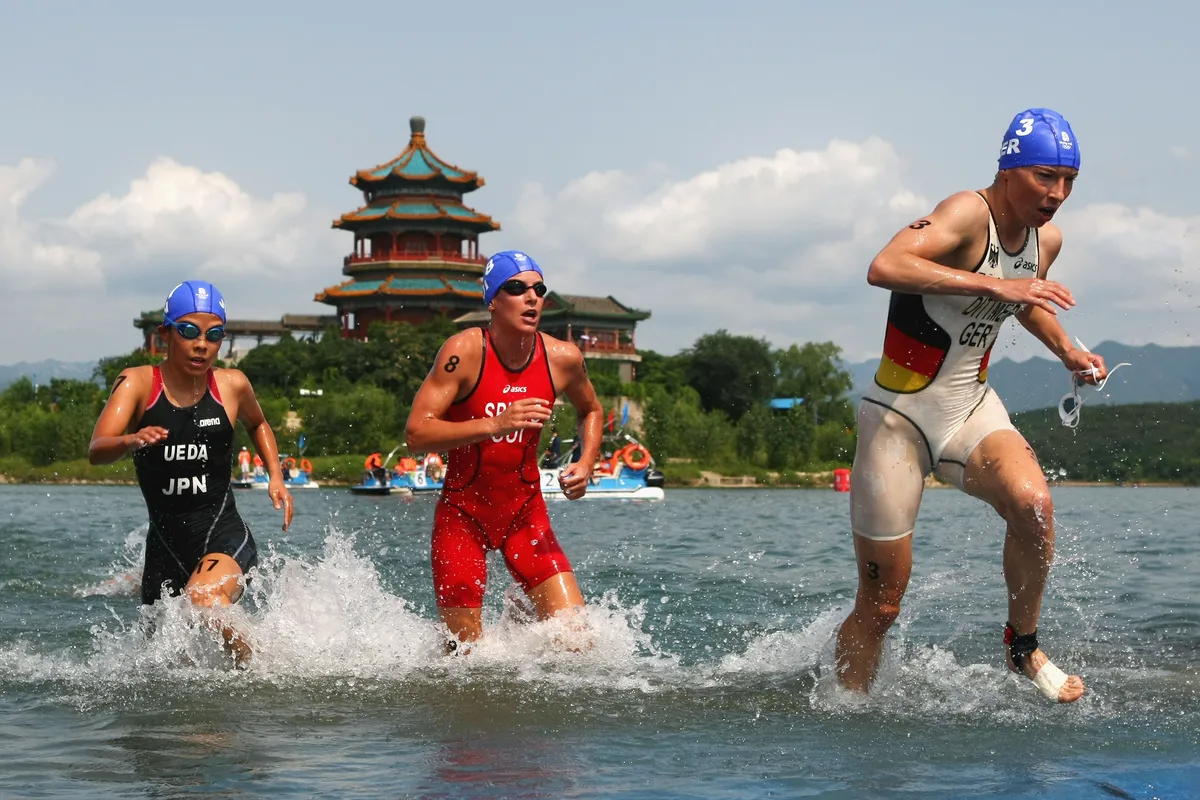
The public reacted more positively this time. I think a lot of people could see how much effort I put in, how I never gave up and fought until the end, and were impressed by that. I’m a different athlete now than I was in Beijing and there were completely different circumstances at both races and preparations.
220: Sixth place is obviously still a great performance, but presumably a medal was the goal?
I was disappointed that I didn’t win another medal because, yes, that was the goal. I was very well prepared and in great shape, and it would have definitely been possible under other circumstances.
But at the same time, I was happy with my performance because I think I gave everything and did everything possible in my power and showed a very good race. I can look back and see nothing I should have done differently.
Having no one helping in my pack, and the front pack having three TV motorbikes, which certainly gave some extra draft, didn’t help us catch up with the first pack
220: Which was your favourite Games and why?
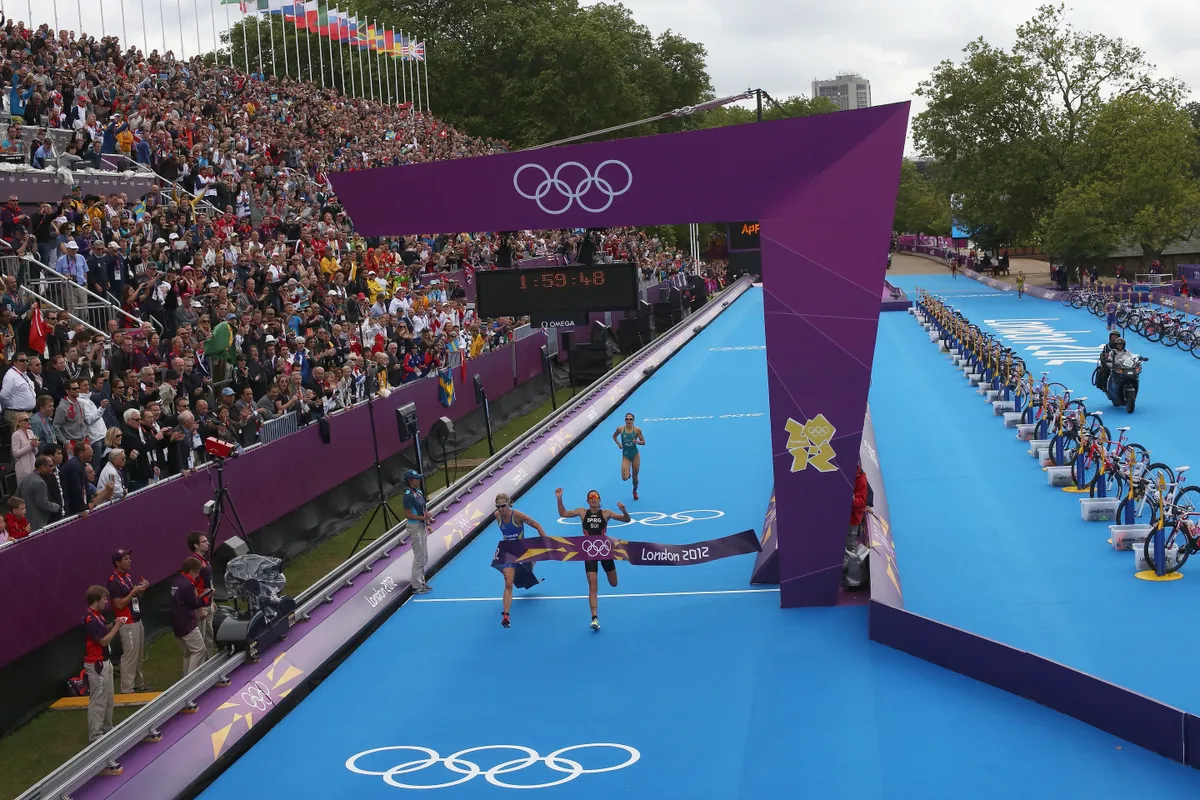
London, of course. Becoming Olympic champion leaves very good memories, and those Games were just amazing because all the English people were 100% supporting it. You could feel the positive spirit everywhere in the streets, and the spectators, the huge crowd during the race, along the course, was amazing!
220: What's your fondest memory from Tokyo?
Olympics are special because it’s only every four (or five) years and you prepare for this one day. So the fondest memories will be about the journey going there, what I experienced and learned, how I felt in the months beforehand. In Tokyo, I missed the encounters with other athletes from other sports and other countries, it was very restricted due to Covid. But there were still some moments I really enjoyed, being with our little Swiss triathlon team, meeting other athletes from the Swiss delegation, having talks with beach volleyballers, swimmers, climbers, etc.
220: Do you hope to race Paris 2024 or is six Games ‘enough’?
I’m very happy with my career and never thought I would go to five Olympics! With three kids, life is very busy and full of important things away from sports. We will sit together as a family and discuss how we will continue our life so that everyone is happy.
You could feel the positive spirit everywhere in the streets, and the spectators, the huge crowd during the race
220: How did you manage training and family life during the pandemic?
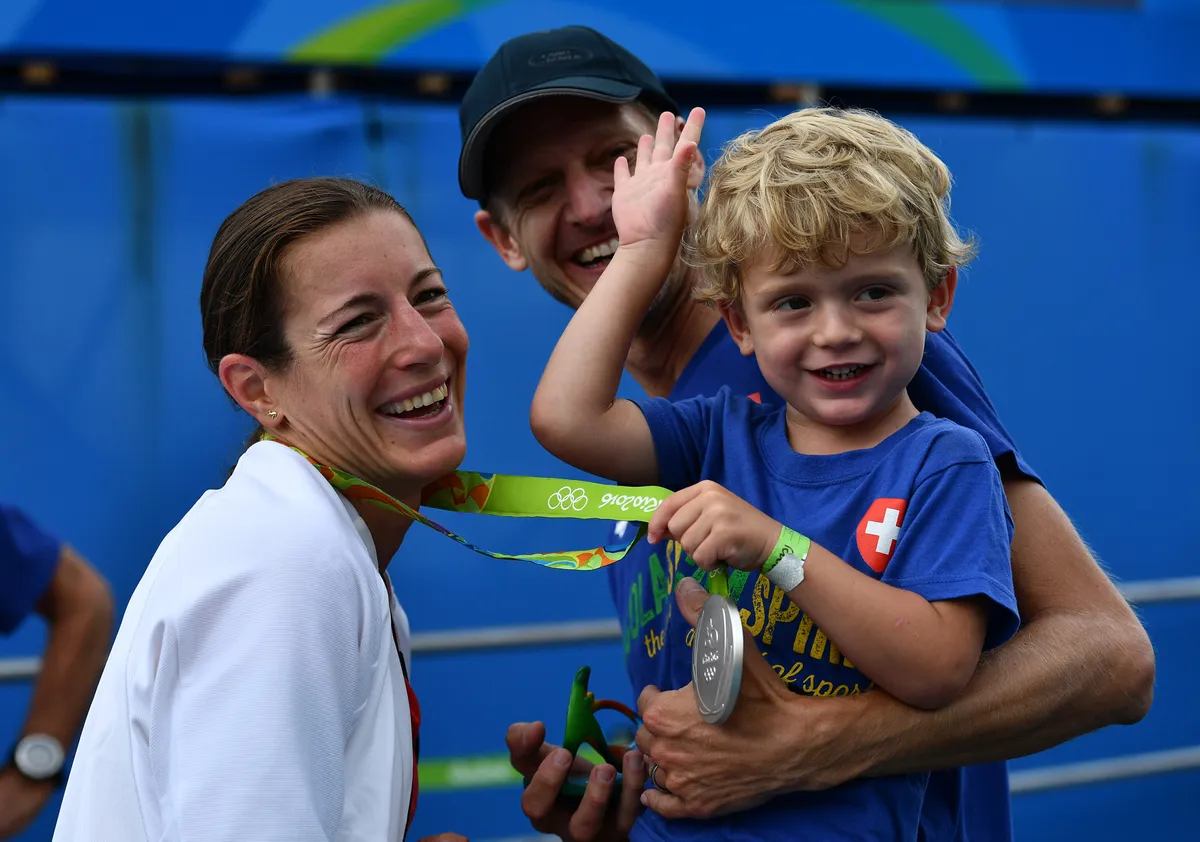
We [husband and three-time triathlon Olympian Reto Hug] had to do some home schooling during the first lockdown, in spring 2020, but not for long. And after the Olympics were postponed it was pretty relaxed, with neither us nor the kids having any events and appointments, we enjoyed this downtime. Training-wise, not being able to swim was very difficult for a while, otherwise I’m used to training at home or close to home, and by myself, so that wasn’t a problem.
220: Would you like your children to get into triathlon?
They’ve done some little triathlons from our own kids’ series that we organise in Switzerland (Pho3nix kids triathlon by Nicola Spirig). But they don’t train for it, just have some fun. To us, it’s important they just find something they have a passion for, no matter if that’s in sports or another area.
220: What does an average day look like for you?
Every day looks a bit different, but usually I get up and eat breakfast with the kids before I train, see them in between the sessions and am done at 6pm at the latest, to eat dinner with them and help get them to bed. My husband is at home, so we have quite a lot of time together with the kids and see this as a privilege. Going into big events I usually train three times a day, from home or take the family with me to training camps with my international squad whenever possible.
- Secrets of the pros: Nicola Spirig
- All the action from the women's Tokyo Olympic triathlon in pictures
- Who are the fastest runners in triathlon at the Olympics?
- 20 best moments in Olympic history
- Open-water swimming: how to get faster from the pros
- How to pace your run like a pro for maximum performance
- How to climb like a pro during the bike leg
220: What do you have planned in the sport for the rest of the year and beyond?
I’ll do some races to help maintain some motivation in the lead-up for the Sub8 project in May next year, with the Pho3nix Foundation*.
220: Tell us about your Pho3nix Kids organisation.
My husband and I have organised a kids triathlon series in Switzerland since 2014, to give something back and inspire kids to be active. I also have a foundation, which is trying to give the same message to the kids, going into schools and showing them why sport is so important and how it can help them in all aspects of their life.
We now have a great partnership with the Pho3nix Foundation, too, which shares the same goal. It’s great to have their support, so we can build our kids projects on a larger scale and link it internationally.
220: How do you hope your achievements in triathlon resonate with viewers, and women in particular?
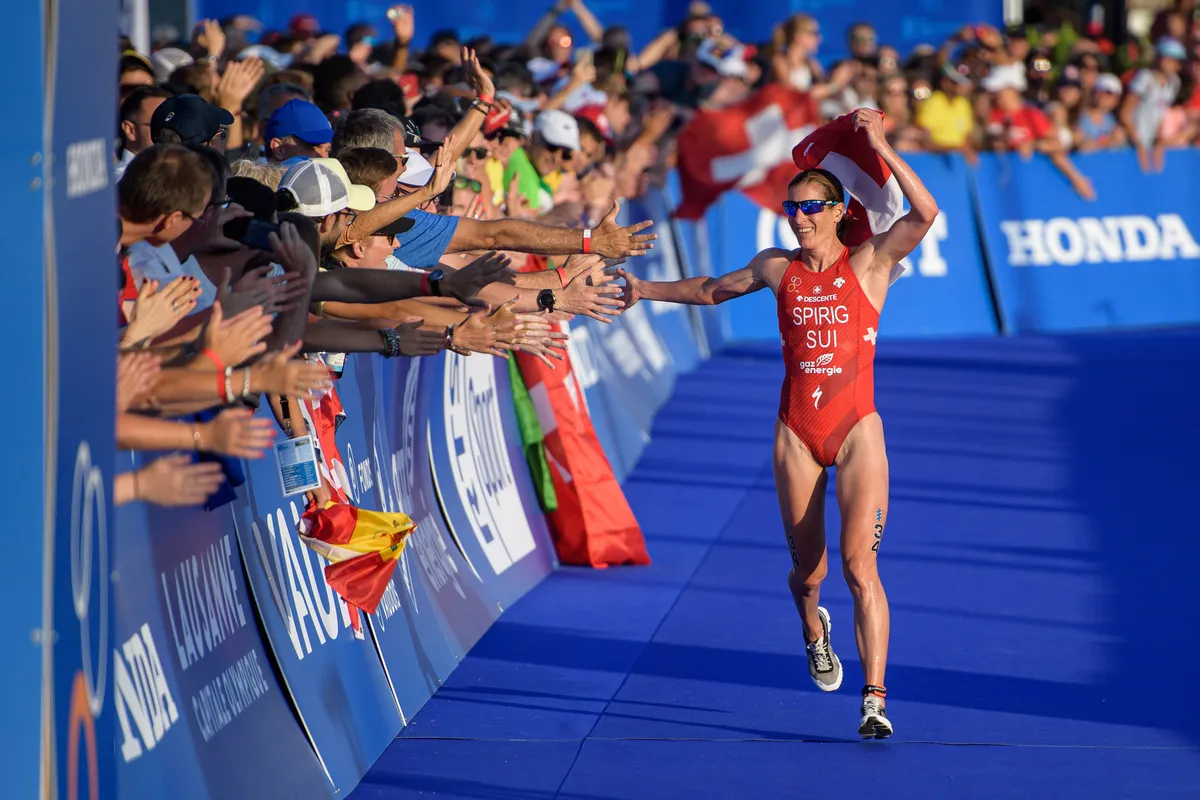
I hope I can inspire many others to follow their dreams and goals. It’s hard work sometimes, but I always found that it’s worth it. Even if you’re sometimes not able to reach your goal in the end, you still experience and learn so much along the way and it allows you to develop and become a better person.
I also hope I can show women that there are different lifestyles and different ways of organising your family with your partner. Not one lifestyle suits everyone, but you should discuss what is best for you and your family and then find the support from your environment and make it work.
I’m 39, have three kids, I ran personal bests after a 23-year career this year over 10km, became European champion and went to my fifth Olympics.
I finished my studies as a lawyer, have my own foundation and other projects, and love my job as an athlete because I can see my kids and my husband after every session. I think you can have a life with many different aspects and be happy if you’re willing to put a lot of energy into it, and if you have some support from your environment.
220: How would you like to see the sport grow?
It would be great if more women could do what I’m able to do; to stay professional athletes should they wish to after having kids and being able to provide the financial needs for the whole family. For this, prize money and sponsorship need to become better, for women and for men.
220: What advice would you give women considering doing tri but who are apprehensive about the work/family/training juggle?
It’s not easy, especially if you have to work as well. I’m lucky that I can do my sport as my work. However, if you really want to do it I think you can find ways, like combine family and training by taking the kids with you in the baby jogger or on the bike, or combine work and training by riding to work, train early when the kids are still sleeping, etc. For me, it’s about finding the balance, being flexible and finding out what works best every day.
It would be great if more women could do what I’m able to do; to remain a pro athlete should they wish to after having kids and being able to provide the financial needs for the whole family. For this, prize money and sponsorship need to become better, for women and for men
220: Looking back on your career, what would you have liked to have known at the start? And what would you tell that young Nicola Spirig starting out?
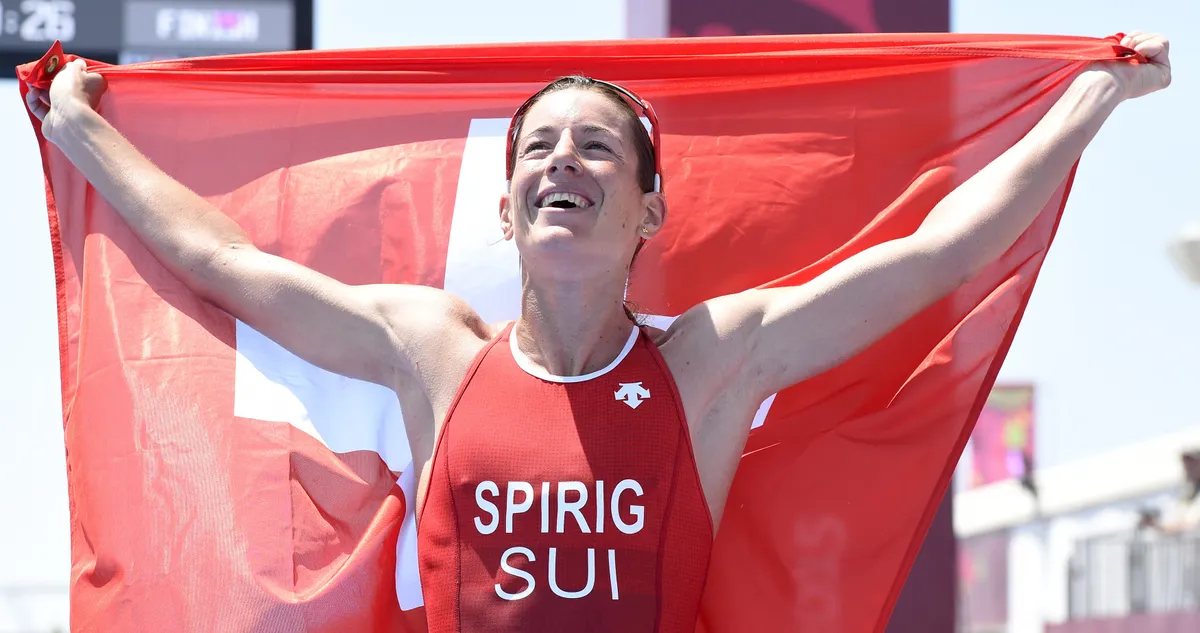
I was on a training camp in South Africa last year with some young Swiss athletes and it was my birthday. One of the athletes asked how old I was, and then laughed and said that she was actually half my age!
I thought about what I’d done in those years that this young girl has in front of her: went to five Olympics, became Olympic champion and Olympic silver medallist, finished my studies, found my dream partner, got married, had three kids, bought and rebuilt a house, set up a foundation and organised a kids series, became seven-time European champion… and I quickly decided that I was so glad that I wasn’t that age anymore and that I didn’t know what was to come, haha!
I think it would have completely overwhelmed me and I would have panicked. It wasn’t like I planned to do all this, but I just took it step by step and fulfilled all my dreams that turned up along the way.
So, I wouldn’t tell a young Nicola Spirig much except to believe in herself and her abilities, to be brave and have the guts to follow her dreams and passion. Kind of what she actually did really, just with a bit more confidence!
220: You’re a sporting hero for many, but who are yours and why?
I admire different aspects of many athletes, so I used to just try and imitate that particular thing I admired them for and piece together a ‘superhuman’! But if I had to choose one, then Roger Federer.
Not just for what he did in his sporting career, but how he treats the people around him – always polite, always patient and friendly, which really impressed me. A champion on and off the court.
220: What has triathlon given and meant to you?
Triathlon has given me a lot and in very different ways. I often say I handled my studies much better thanks to triathlon, because I knew how to work efficiently, how to deal with problems, how to handle pressure before big exams.
Triathlon changed my way of thinking, made me a better person. It gave me more self-confidence and made me proud of myself, not only for the victories and medals, but for how I prepared races and handled bad times. Triathlon has given me a life that I like very much.
* The Pho3nix Foundation is a non-profit organisation created by Polish businessman Sebastian Kulczyk, with the sole purpose of promoting physical activity as a way to improve health and wellbeing among children with a particular focus on those in disadvantaged situations.
